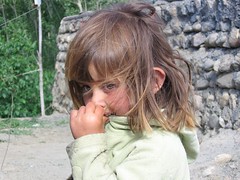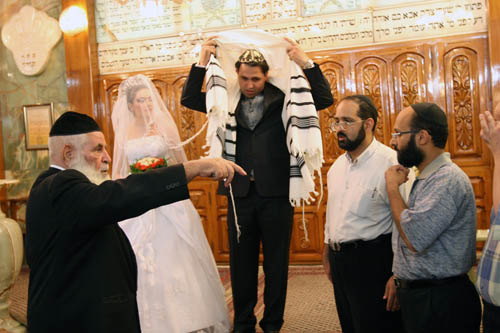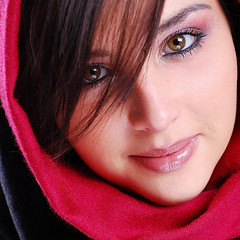

| Visitors Now: | |
| Total Visits: | |
| Total Stories: |

| Story Views | |
| Now: | |
| Last Hour: | |
| Last 24 Hours: | |
| Total: | |
What Do These Beautiful People Have In Common?












They’re Iranians.
(They also happen to live in a stunningly beautiful country).
Why am I – an American – saying anything nice about the Iranian people?
Well-known American travel writer Rick Steves – who normally focuses on Europe – visited Iran to find out what the people are really like.
As Steves says in a 10-minute C-span video, it is common to demonize the enemy to try to justify war, but we should “get to know people before we decide to bomb them”.
While the hard-liners in Iran are problematic, I – like Steves – am simply trying to show other sides of Iran than normally shown in the war-loving American media (and disruptive forces on the web), especially given that:
- Security experts – including both hawks and doves – agree that waging war in the Middle East weakens national security and increases terrorism. See this, this, this, this, this, this, this and this.
- The U.S. has been claiming for more than 30 years that Iran was on the verge of nuclear capability
- Top American and Israeli military and intelligence officials say that Iran has not decided to build a nuclear bomb
- Top American and Israeli military and intelligence officials say that – even if Iran did build a nuclear bomb – it would not be that dangerous, because Israel and America have so many more nukes. And see this
- Top American and Israeli defense and intelligence bosses say that attacking Iran would only speed up its development of nuclear weapons, empower its hardliners, and undermine the chance for democratic reform
- The people pushing for war against Iran are the same people who pushed for war against Iraq, and said it would be a “cakewalk”. See this and this
- Well-known economist Nouriel Roubini says that attacking Iran would lead to global recession. The IMF says that Iran cutting off oil supplies could raise crude prices 30%. War with Iran would kill the American economy. And see this and this
- China and Russia have warned that attacking Iran could lead to World War III
- Iran has one of the largest Jewish populations in the world, and the second-largest in the Middle East behind Israel
- Jews are protected by the Iranian constitution, and are guaranteed seats in the Iranian parliament. And see this
- It was the ancient Iranian king Cyrus who freed the Jews from captivity by the Babylonians
- According to Stanley Weiss, Iranian diplomats in Europe saved thousands of Jews from the Holocaust and Iran served as an escape route for Iraqi Jews fleeing to Israel after the 1948 war for Israeli independence. Weiss also says that Iran was one of the first Muslim countries to establish diplomatic and trade relations with the state of Israel
- The CIA admits that the U.S. overthrew the moderate, suit-and-tie-wearing, Democratically-elected prime minister of Iran in 1953. He was overthrown because he had nationalized Iran’s oil, which had previously been controlled by BP and other Western oil companies. As part of that action, the CIA admits that it hired Iranians to pose as Communists and stage bombings in Iran in order to turn the country against its prime minister
- If the U.S. hadn’t overthrown the moderate Iranian government, the fundamentalist Mullahs would have never taken over. (Moreover, the U.S. has had a large hand in strengthening radical Islam in the Middle East by supporting radicals to fight the Soviets and others)
- The U.S. armed and supported Iraq after it invaded Iran and engaged in a long, bloody war which included the use of chemical weapons. Here is former Secretary of Defense Donald Rumsfeld meeting with Saddam Hussein in the 1980′s, several months after Saddam had used chemical weapons in a massacre:
- The U.S. helped fund Iran’s nuclear program
- The U.S. has been actively planning regime change in Iran – and throughout the oil-rich Middle East and North Africa – for 20 years
- The decision to threaten to bomb Iran was madebefore 9/11
- America and Israel both support a group designated by the U.S. as a terrorist organization which is trying to overthrow the Iranian government – the same group Bush focused on when he accused Saddam Hussein of harboring terrorists.
- Indeed, the U.S. is supporting Islamic terrorists who are killing Christians and Jews (these are the same idiots who are now attacking our embassies)
- Israel is permanently stationing a submarine carrying nuclear cruise missiles in the Persian Gulf, and America is playing the bully’s trick of pretending he is the victim
- We have nothing to fear but fear itself … and the fear of terrorism is destroyed America.
Finally, I am against any religion being unfairly blamed for terrorism. For example, Christianity is not responsible for terrorism, even though the Norwegian shooter claimed to be a devout Christian, millions of the most radical types of evangelical Christians want to start WWIII to speed the “second coming”, rogue U.S. military leaders want to start a nuclear war to wipe out Islam, a FEMA trainer implies that Christians are crazy radicals prone to terrorism, and polls show that Christians are more prone to use violence than Muslims.
What Do These Beautiful People Have In Common? was originally published on Washington's Blog
2012-09-25 18:05:37
Source: http://www.washingtonsblog.com/2012/09/what-do-these-beautiful-people-have-in-common.html
Source:

























